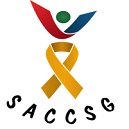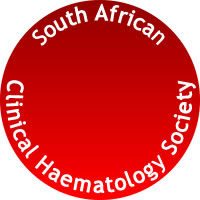Original Research
Unplanned attendances of cancer patients to an outpatient unit in a low-income country: A prospective study from Sudan
Submitted: 10 March 2020 | Published: 15 September 2020
About the author(s)
Moawia M.A. Elhassan, Department of Clinical Oncology, National Cancer Institute, University of Gezira, Wad Medani, SudanSafa I.H. Taha, Department of Clinical Pharmacy, Faculty of Pharmacy, University of Gezira, Wad Medani, Sudan
Maha M.A. Maatoug, Department of Clinical Pharmacy, Faculty of Pharmacy, University of Gezira, Wad Medani, Sudan
Abstract
Background: Studies of unplanned attendances of cancer patients to outpatient oncology units in limited-resource settings are rare.
Aim: The primary aim of the study was to determine the cause of unplanned visits of cancer patients to an outpatient clinic in a limited-resource setting. A secondary aim was to provide an overview of the demographic, clinical characteristics and outcomes of this cohort of patients.
Setting: Outpatient clinic at National Cancer Institute, Sudan.
Methods: This prospective cross-sectional study was conducted between October 2018 and February 2019. Clinical data of patients who presented without an appointment during the study period were reviewed.
Results: Out of 5957 patients’ attendances to the outpatient clinic during the study period, 70% were planned and 30% were unplanned. A total of 642 patients made the unplanned visits to the outpatient department. Only 501 of these patients met the criteria for inclusion in the study. The purpose of the unplanned visits included: clinical assessment (75%), giving results of investigations when patients missed their planned appointment (20%) and refilling of prescription medication (5%). Most of the patients were females (64.5%), and the most common tumour site was the breast (26.7%), followed by the gastrointestinal tract (18.4%). The majority (63.5%) of the patients had loco-regional disease and 24.5% had stage IV disease. At the time of this study, only half of the cases were on active oncological treatment. The most frequent presenting complaints at unplanned visits were uncontrolled pain (39%), vomiting (11%) and fever (9%). Ninety-five patients (19%) were hospitalised after an unplanned presentation.
Conclusions: Thirty percent of patients’ attendances to the outpatient oncology clinic were unplanned. Uncontrolled pain was the most frequent symptom (39%) that prompted patients to attend the outpatient unit without an appointment. We recommend that the adequacy of cancer pain management in our setting should be systematically evaluated and that effective cancer pain management programs should be developed to prevent unplanned visits prompted by uncontrolled pain.
Keywords
Metrics
Total abstract views: 3735Total article views: 4170



